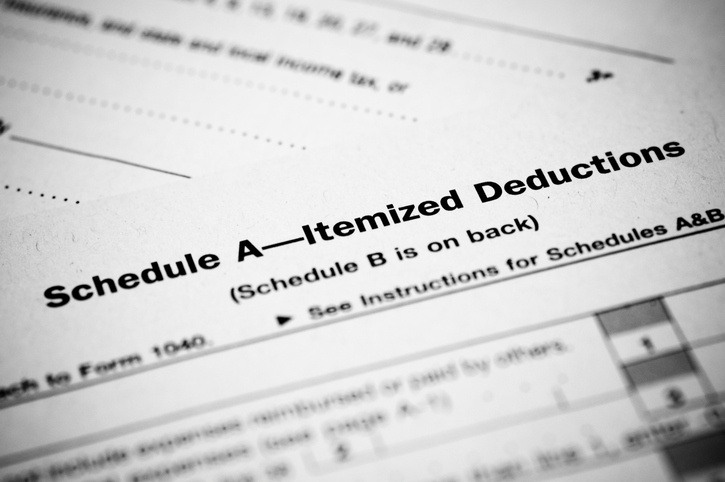The Universal or Above the Line Income Tax Charitable Deduction
The Tax Cuts and Jobs Act of 2017 (the Tax Act) doubled the standard deduction and capped deductions on state and local taxes at $10,000, while retaining the income tax charitable deduction. The doubling of the standard deduction and capping state and local taxes means far fewer taxpayers will itemize their deductions on Schedule A of Form 1040. Fewer itemizers will mean fewer people benefiting from the itemization of their charitable deductions. The Council on Foundations is predicting a drop of $16B - $24B in charitable giving off a base of $390B. That’s about a 5% drop. A study by the Lilly Family School of Philanthropy projects a potential decline in charitable giving of 1.7% to 4.6%.
The charitable community advocated for an “above the line” or “universal” income tax charitable deduction during negotiations leading up to adoption of the Tax Act. The universal charitable deduction would allow all taxpayers to benefit from a charitable deduction, even if they took the standard deduction. An Indiana University Lilly Family School of Philanthropy study, commissioned by Independent Sector, concludes that extending the charitable deduction to non-itemizers would help offset the potential losses in charitable donations caused by the reduction in the number of itemizers. The study estimates that this type of universal charitable deduction would increase charitable giving by approximately $18 billion.
H.R.5771 - Charitable Giving Tax Deduction Act was introduced by Rep. Chris Smith (R-NJ) on May 10, 2018 in the House of Representatives. The bill, which enjoys bi-partisan support, provides for an “above-the-line” income tax deduction for charitable contributions. As written, the bill does not impose the 60%/30%/20% of AGI caps that apply to itemized income tax charitable deductions. The bill was referred to the House Committee on Ways and Means. A similar bill has not been introduced in the Senate.
The Congressional Budget Office (CBO) produces cost estimates for select bills and resolutions such as H.R. 5771. As of October 9, 2018, a CBO cost estimate for this measure has not been received.
As of the writing of this article, five additional representatives have signed on as co-sponsors of the bill from both the Democratic and Republican parties. Nonprofits are energized by the introduction of this measure. If the bill becomes law, it would codify an enhanced incentive for people to give and would send a clear message from the government that the charitable sector is important.
Multiple advocates on behalf of the non-profit community are working to persuade Congress to pass H.R. 5771. These include the Association of Fundraising Professionals, Independent Sector, the Alliance for Charitable Reform, and the National Association of Charitable Gift Planners. You can help by encouraging your Representative to move H.R. 5771 through the House. Reach out to your Senator to sponsor similar legislation in the Senate. You can find information on how to contact your Members of Congress here.
